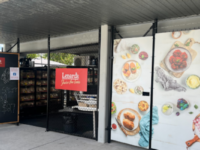7-Eleven has restructured its organisation and introduced agile methodologies, creating cross-disciplinary groups empowered to make decisions.
CEO and MD, Angus McKay, said the rethink of the way the convenience chain works is based on an ambitious goal of providing “1 billion customer moments per year by 2030”.
“That’s a fourfold increase on the approximately 250 million transactions delivered in the last financial year,” McKay said.
“When we were setting the ambition, we realised that if we set the horizon to somewhere we already know how to get to, we would be limiting ourselves. The challenge we set was to aim for something that made us uncomfortable, that we didn’t know exactly how we were going to achieve.”
What was required was a complete rethink on the way the business worked, he said, to allow for greater flexibility.
“As our network grew, and we started to play more heavily in spaces such as digital and food, and push the boundaries in formats, we found that we couldn’t test, iterate and roll out as many new innovations as we wanted to.
“In traditional structures there are inevitable bottlenecks, and you don’t have the flexibility to move people around without impacting reporting lines, roles and budgets. There can also be challenges if outcomes aren’t clearly connected across departments and with business objectives.
“We decided that we wanted an agile structure made up of squads of people with mixed skill sets empowered to make the decisions needed to achieve key results that directly linked to the organisation’s quarterly metrics.
“The ways of working mean we can develop the right capabilities for the work that needs to get done, and for our people it sets them up to develop an amazing array of skills for their careers.”
McKay said the changes will deliver benefits for customers, help the growth of the business, and provide accelerated career development and learning opportunities for employees.
“The ways of working separate career progression and learning opportunities from titles, hierarchy and renumeration,” he pointed out. ‘The way people progress and are rewarded is linked to their contribution and capabilities mapped against a specific model for their craft.”
The business is still in the early stages of this transformation but is already seeing a positive impact.
“One of our squads recently made significant changes to our sushi range to improve the quality of the products in response to customer feedback,’” said McKay. “In the past it would have taken about 24 weeks for the team to have new products in stores to test customer reaction, in our new way of working it took 12 weeks. I think the potential of the change across the business is extraordinary.”
This story originally appeared in our sister publication, Inside Franchise Business Executive.

















